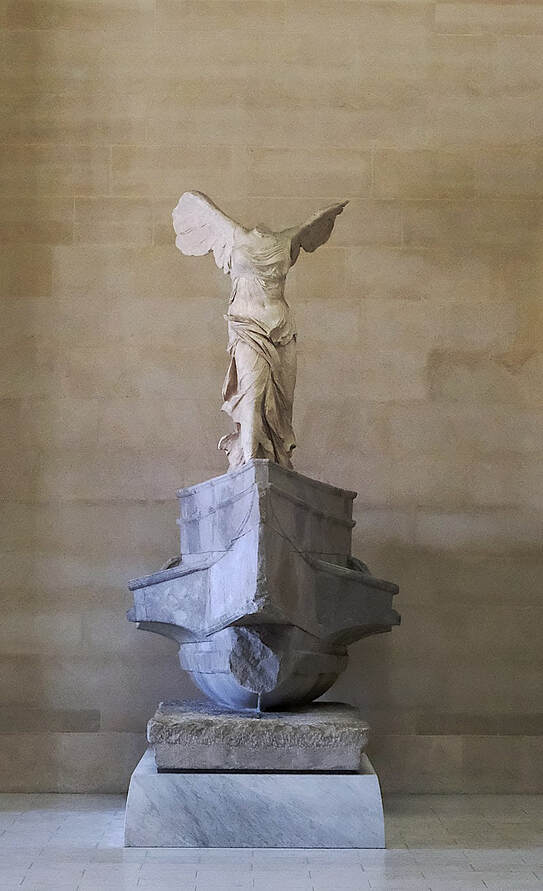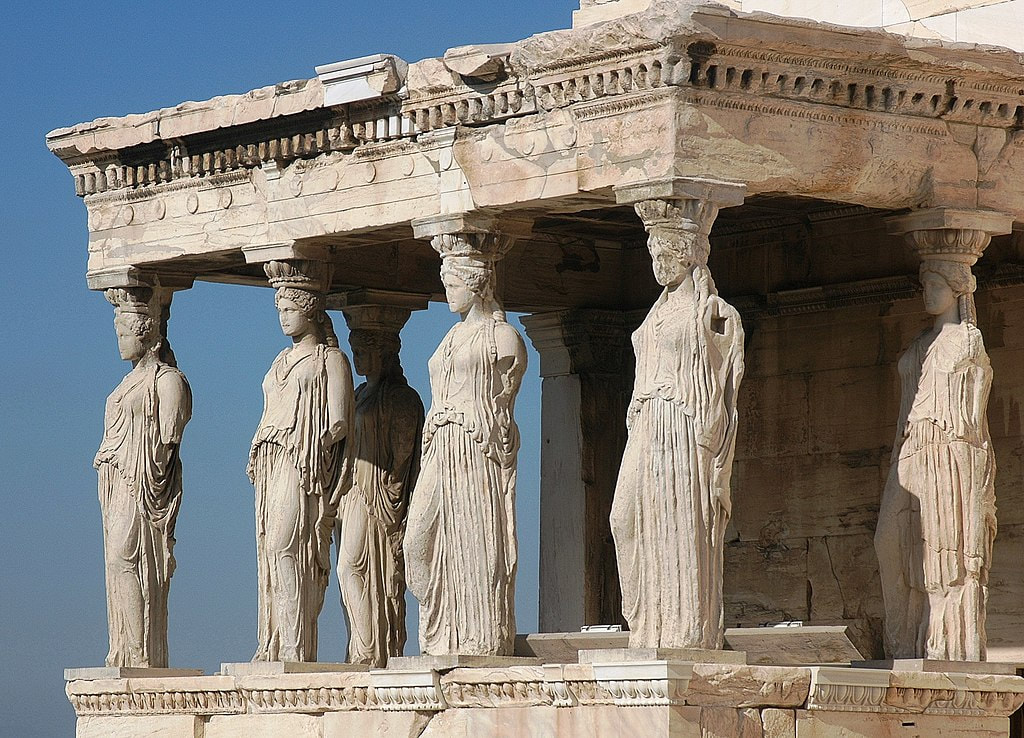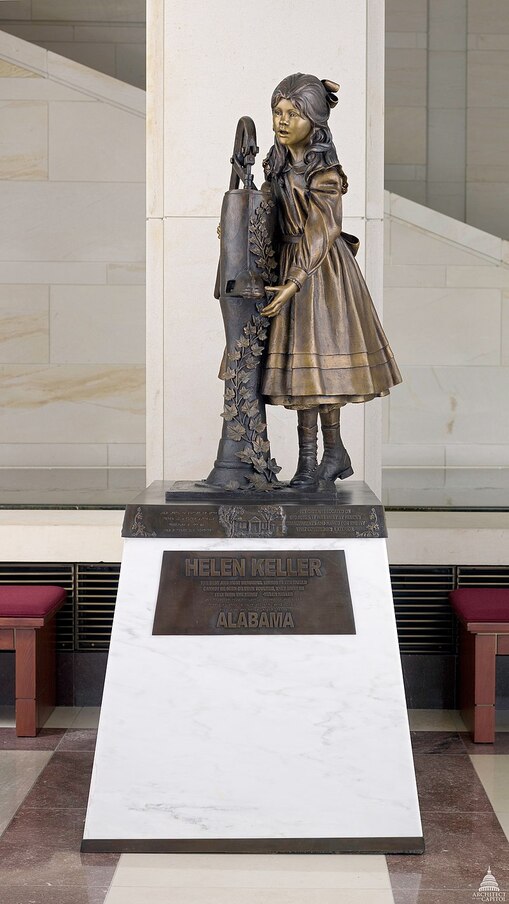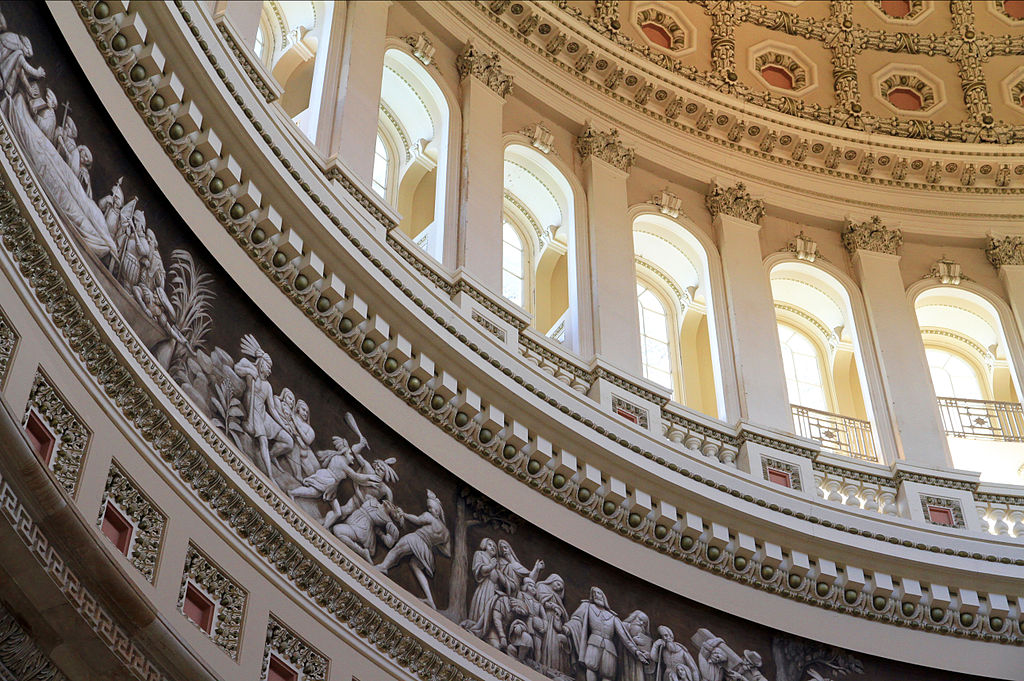|
The Goddess of Plastic Figures Headless and armless, a goddess alights on my shelf, enshrined in all the glory twelve inches of plastic allows. Dinoflagellates stitched starlight into carbon long before Nike, Winged Victory of Samothrace, landed on the prow of a trihemiolia, proclaiming ancient triumph, long before her statue was smashed, her glory forgotten, before the bits were carted away, rebuilt in the Louvre, hidden from Nazis, given the Daru Staircase, before we learned to change star-carbon into petroleum and yearly cast her into 49 plastic statuettes, carted home in backpacks to adorn bookshelves and trophy cases. She means something else now—her stylized shadow on every swoosh-bearing jacket, hat, field, singlet, and shoe hides her with overexposure. We forget her. But not the plastic figures. They share her star-carbon and know the power in billowing, harrier-wide wings. PEZ dispensers, Funko Pops, Hasbro toys, LEGO minifigs, plastic dinosaurs, even a Kenner Nien Nunb with blaster, lining shelves on plinths in the Museum of Obsession, turn to her as shocked Grecian sailors, twitching alive like Small Soldiers so they can raise their laurels. To them, no other likeness of anything is higher than she. Sestina for the Caryatids There was no such thing as an empty plinth. We stood where we stood, each unique braid caressing our necks, supporting the weight of baskets, dates, and stone together, but you joked about dropping our burden. You alone. Despite the roof on our heads catching the rain. From our porch we watched the rain, stood beside the flowers’ concrete plinth, watched you run into it to dance, you alone, pointing your toes, flailing your braids, soaking in through your hair the weight of all that the sky could give you. But in your dancing, unbeknownst to you, time chipped like rain. We tumbled under the weight. Unbroken, returning to plinth you blinked at crumbled braids. If one of us could remain, it would be you alone. In the light of the early morning, you rose alone, scampered to stand, you turned on the lights, braided mystery with rain, cleaned our empty plinths, dusted dust, and waited. Is it heavy to wait on time? You alone could do it. You filled your plinth every day, found ways to bear the load better, you stood in the weather, let the rain unravel your braids until water was the only remaining braid. And under all that weight, you gave up on rain. You stood alone. And from our crumbled eyes, we watched you sigh, wave goodbye, and step off your plinth. When you used to leave your plinth to dance in the rain, we complained that you were the stress on our braids. But we did not help you carry our weight. That was you alone. Bronze Fingers, U.S. Capitol Building In the places where steps have smoothed and divots formed, molecules departing on shoes for centuries until stone steps become stone scoops, those are the same places where you will find me. In our abruptness and sudden abandonments, we forget that repetitive human action also digs into the world. We erode our surroundings-- sometimes even slower than water and wind. I want to tell the seeing children to stop; go ogle at Jeanette Rankin or Kamehameha, but stop taking these bits of copper and tin away on your hands. I see like they do; I want to touch it too. But millions have brushed the bronze message into oblivion for the fingertips that come to read. A Plan for Removing Residue the composition of tear gas is designed to disable; tear gas is a structural maintenance nightmare You should not be here like this, say the statues. A visitor cannot leave the simplest gift or offering (no cornmeal, no leis, no “I Voted” stickers), but as you run, you leave behind your flags and cans, your plastic bottles, cigarettes, and blood. no such thing as easy tear gas remediation A tired congressman brushes the marble, bronze, copper, brass, the tile floors, the solid walls and columns. A custodian tosses the hat left on Ford’s head, blows dust from the curls in Grant’s beard, bags the plastic debris. but remove and dispose of all porous materials: carpeting, padding, cloth furniture, draperies, materials into which tear gas can penetrate What to do with the plaster and canvas, the porous faces of Pocahontas, Tecumseh, forebears, thinkers, and inventors? Even War and Peace can crumble. Do grisaille and oil eyes sting with the bite and spice of gas? in most cases, porous materials cannot be cleaned completely Our permanent representatives—a king, pacifists, defenders, farmers, immigrants, guides, astronauts, poets, and even a cowboy artist—continue their work, lingering in figure and image, and they will not forget. They cannot—their eyes are ever tear-tracked. Gabriel Meek Gabriel Meek is a poet and teacher from Spokane, Washington, where he earned his MFA from Eastern Washington University. He is fond of movies, museums, and monsters.
1 Comment
Ricardo Worl
2/28/2023 04:52:22 pm
Great work! Keep it up, Captain!
Reply
Your comment will be posted after it is approved.
Leave a Reply. |
The Ekphrastic Review
COOKIES/PRIVACY
This site uses cookies to deliver your best navigation experience this time and next. Continuing here means you consent to cookies. Thank you. Join us on Facebook:
July 2024
|







